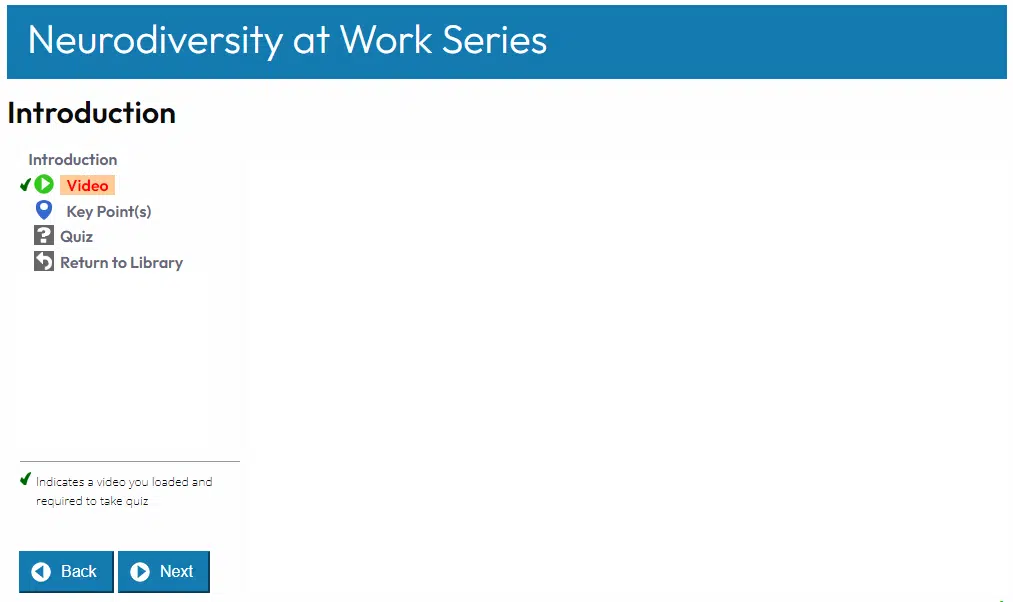If you’ve spent much time in an office environment, you’re aware that everyone has their own unique style of doing things. Organizations wouldn’t be the diverse, successful and productive places they are if this weren’t so. Most everyone is aware of the common meaning of diversity in the workplace, however there’s an important sub-component of diversity that’s rarely addressed but frequently encountered: neurodiversity.
It can sometimes be a challenge to work alongside people who think, communicate or behave in ways we’re not used to. Increasing our empathy and understanding surrounding neurodiversity will strengthen our organization, improve service levels and help our neurodivergent colleagues to perform to their potential.
Here’s what your team will learn:
1 Course
Introduction
No matter if you’re familiar with the term ‘neurodiversity’ or not, everyone can learn how to better support coworkers and clients who think, behave, or otherwise operate differently from us.
2 Course
What is it?
In order to better support neurodivergent coworkers and clients, it’s important to first understand what neurodiversity entails.
3 Course
Environment
Various environmental factors in the workplace can make or break certain employee’s productivity and mental wellbeing, particularly if they’re neurodivergent.
4 Course
Supporting Coworkers
We Are Customers To Each Other, meaning we should treat our work colleagues the same as we treat valued customers. There are a variety of factors to be considered when creating an optimal working environment for our neurodivergent coworkers.
5 Course
Supporting Clients
If you’re in a customer-facing position, it’s likely that you’ll interact with neurodivergent clients multiple times a day. By developing a better understanding of neurodiversity, you’ll improve your neurodivergent customers’ experience.
6 Course
Recap
By developing a better understanding of neurodiversity, workplaces can become more welcoming, positive and productive places for both neurodivergent and neurotypical coworkers and clients.
Give your staff the skills to handle every interaction with confidence, professionalism and care. Try ServiceSkills for free by entering your office email below.

4.8/5 stars from hundreds of reviews











